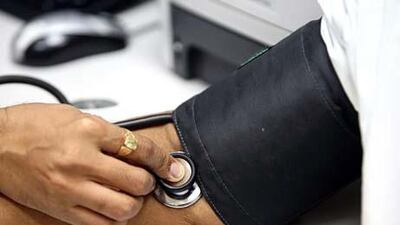For several years now, the UAE has embarked upon vast investment processes to diversify the economy. Certain industries have been identified as engines of growth, including renewable energy, aerospace, the defence industry and banking.
As it appears, biotechnology and the life sciences are very much in the minds of some of the UAE's leaders.
As experts working around the world to help create local world-class biotechnology and life sciences companies and capabilities, we see the Emirates missing an opportunity that Singapore, for instance, a frequent benchmark for economic development excellence, has fully embraced.
Considering the UAE's capabilities and forward-thinking in tackling ambitious transformations, we know the ingredients exist here to do much better in biotechnology and the life sciences.
In September 2010, one of us was invited to Sheikh Mohammed bin Zayed's Ramadan majlis to hear Juan Enriquez, a world expert on biotechnology. Mr Enriquez voiced to the UAE leadership exactly the concerns we have long shared, reaffirming our convictions. Mr Enriquez said there needs to be a stronger focus on health care in the GCC, emphasising the importance of innovation and biotech to solve problems.
He advised local investors to step up their activities and to take calculated risks, looking closely at promising therapies in clinical development, especially when there is peer-reviewed published data.
There are two major problems that have hampered the development of this sector in the Emirates, especially when compared with other regions of the world. There seems to be a real gap between the UAE's desire to be a life sciences/biotech player and doing what is truly necessary to become one. Many entrepreneurs and government entities are interested in these areas, but want to invest on their terms - which go completely against how business is done in biotech and the life sciences around the world. We have observed that at the root, many want results while taking minimal to no risk.
Unfortunately, in biotech more than almost anywhere else, success is impossible without genuine though appropriate risk-taking.
Consider heart disease. The GCC countries have world-class rates of heart disease - the leading cause of death in the UAE, according to the Dubai Health Authority. Further, according to Dr Fahad Omar Baslaib, the head of cardiology at Rashid Hospital and the president of the Emirates Cardiac Society, "one in five people in the UAE have diabetes, placing us second worldwide".
High diabetes rates push heart disease rates up even further.
According to Dr Obaid Al Jassim, the head of the cardiothoracic surgery department with the Dubai Health Authority, "People [in the UAE] start coming in with heart problems at 45, which is 10 to 15 years younger than in Europe." The World Health Organization estimates that in the region, heart disease, stroke and diabetes reduce GDP by 1 to 5 per cent. These are the critical ingredients of which Mr Enriquez speaks.
Yet even with this critical mass, it's not enough to get local entrepreneurs to act. To use just one example, there is a truly breathtaking biotech drug in development in the United States that likely delivers an effective cure for heart disease.
The drug has a very good probability, based upon three completed peer-reviewed clinical trials that have produced breakthrough results, of delivering an effective cure for coronary artery disease and possibly other major forms of heart disease.
Certainly an opportunity of this nature, let alone this magnitude, is extremely rare to come by anywhere, at any time. A number of genuinely interested parties in the region who understand the significance of this technology took a close look at the drug and opportunity. Due diligence investigations confirmed that the drug stands a very good probability of getting through all its clinical trials successfully, and once on the market, will likely generate billions of dirhams in Mena revenues, save millions of lives and alleviate so much unnecessary suffering.
Yet after conducting these investigations, these parties then said: "Yes, we are extremely interested - please come back to us after the drug is approved by the US food and drug administration (FDA), and we will get a deal done."
The fact is, by the time the drug gets approved by the FDA, the opportunity will be long gone, making it impossible to do a deal at any price. This approach is not a formula for success, but it is very much the prevailing approach.
The second issue we keep seeing is the "brick-and-mortar" attitude that holds back so many UAE entrepreneurs from moving ahead with investments that could bring strategic opportunities for the Emirates to differentiate itself. We've discovered that the pioneering spirit needed to advance this life sciences revolution is confronted with the prevailing "brick-and-mortar" mentality, whereby local businessmen and institutions would rather invest in tangible assets rather than in building a knowledge-based industry that stands to deliver breakthrough life-saving therapies and diversify into something sustainable.
The fact is, the cost of bringing these therapies to market and through FDA approval is great for a small biotech company. However, these costs are probably about one hundredth of the price of one of the many football stadiums being raised in Qatar.
The ingredients exist in the UAE to become a serious biotechnology and life sciences player. What is needed is more leadership in this field to transcend ways of conducting beyond the regional comfort zone, a better understanding of what is necessary to achieve this vision and a real commitment to success. We are prepared to work with anyone who possesses these attributes, because we understand the pathway to success that is attainable, but which is not being properly travelled.
Cyrus Hodes is a UAE-based entrepreneur. David Balekdjian is the chief executive of the Bruckner Group, a biotechnology strategy consultancy in Boston, Massachusetts

